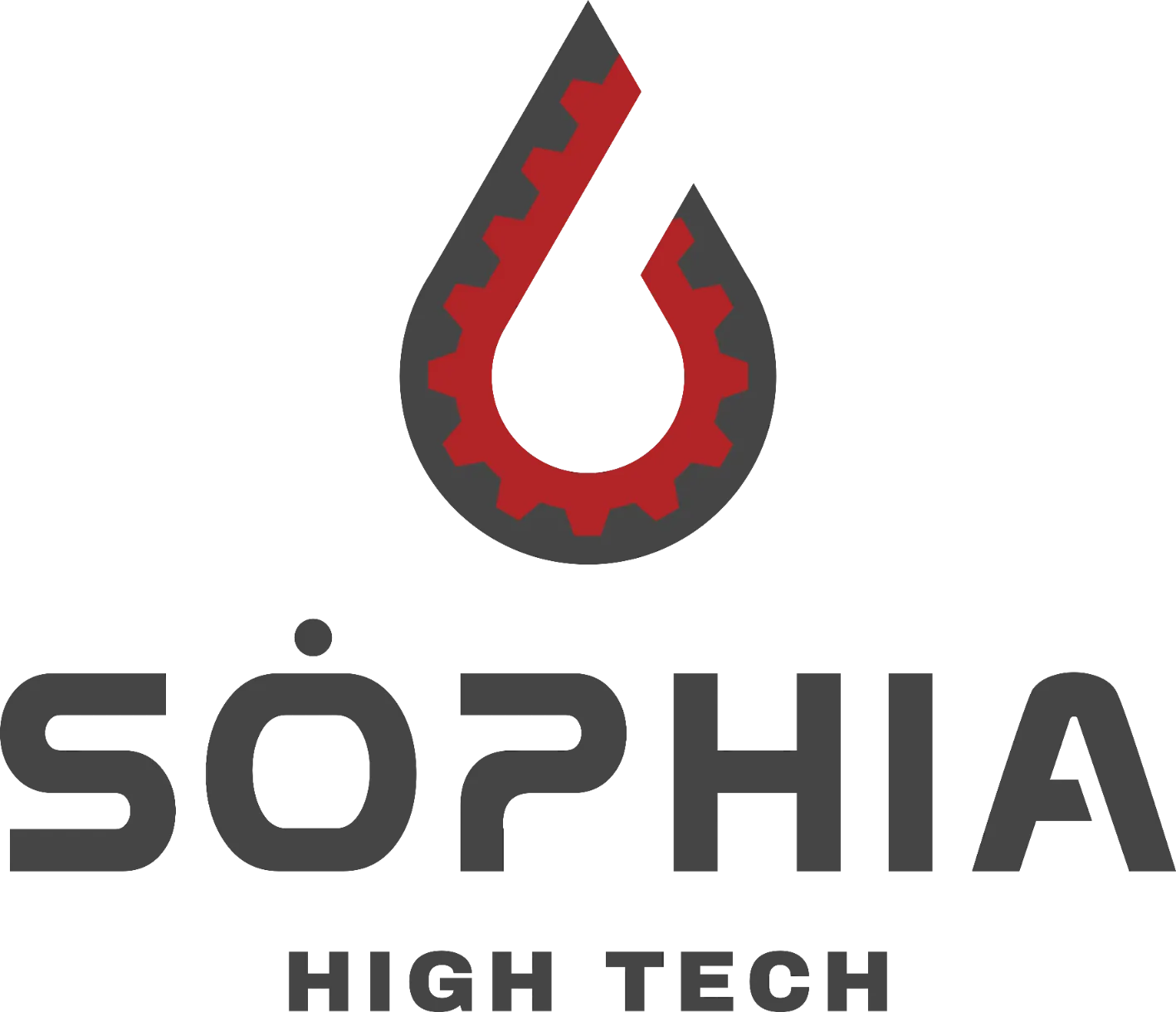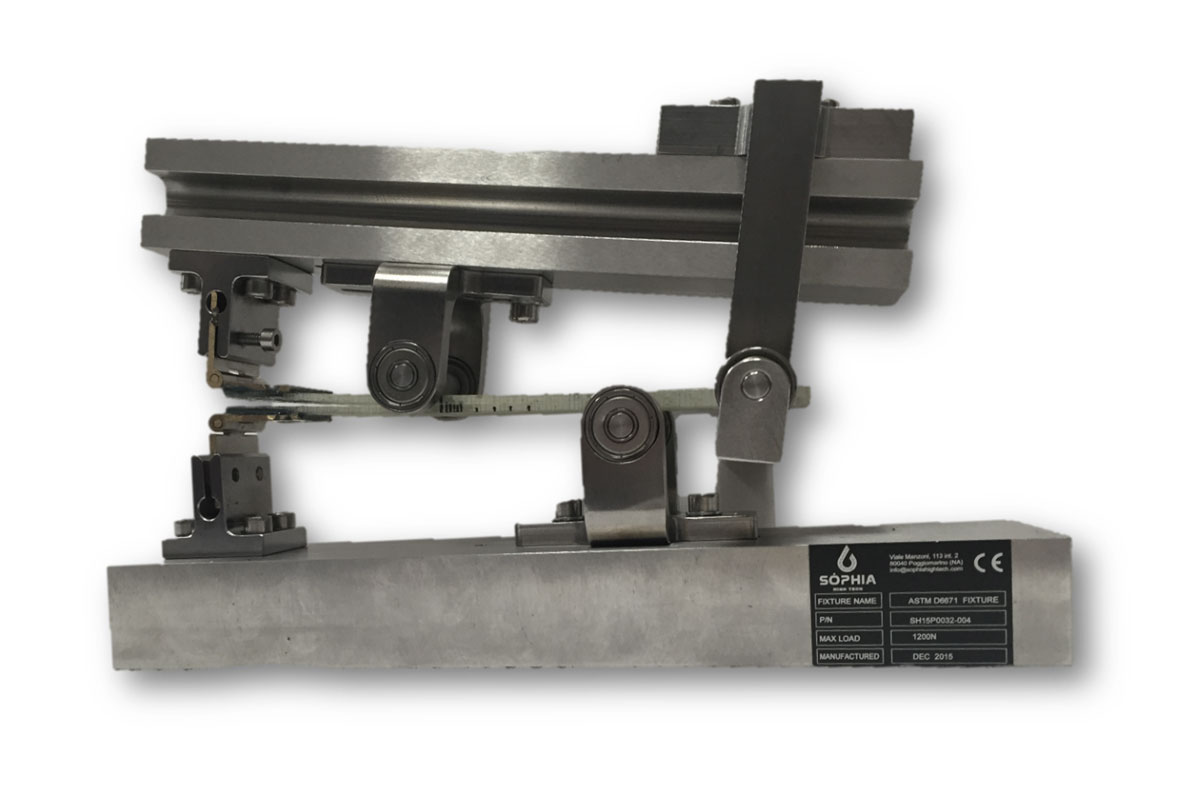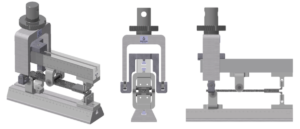
ASTM D 6671 is used for determining the interlaminar fracture toughness of continuous fiber-reinforced composite materials. It can also be used in the adhesive joints testing.
This test method is designed for use of composites consisting of unidirectional carbon fiber tape laminates with brittle and tough single-phase polymer matrices. An important feature of this test method and associated fixture is the ability to perform tests at desired ratios of Mode I to Mode II. Most of the other currently available test methods only allows the application of the specific coefficients, or the relationship is not well defined. The test specimen is typically 4.5” to 7” long, 0.8” to 1.0” wide, and 0.12” to 0.20” thick. It contains an 1.5” to 3.0” long non-adhesive insert at the mid-plane on one end. The hinges are glued or bolted to the top and bottom of the specimen at this end. One of the two hinges is then fixed at the right end of the base, while the other to the right end of the loading lever. At the left end of the loading lever, a force through a yoke will be applied. Applied force versus load point displacement is recorded, as well as the length of the corresponding propagating crack.
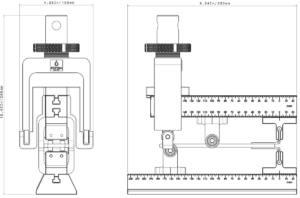
| Test Standard | ASTM D 6671 – D6671 M / no ISO equivalent |
| Maximum Load | 1171 N |
| Temperature Range | da -80 °C a 149 °C |
| Specimen Thickness | 6 mm |
| Specimen Width | 36 mm |
| Specimen Length | 250 mm |
| Mass | 5.00 kg |
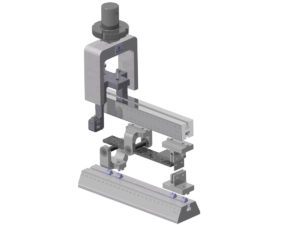
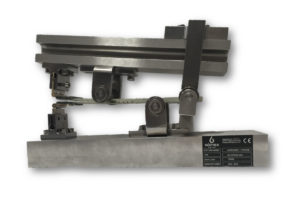
Additional Information:
- ASTM Standard D6671-13, “Test Method for Mixed Mode I-Mode II Interlaminar Fracture Toughness of Unidirectional Fiber Reinforced Polymer Matrix Composites,” American Society for Testing and Materials, West Conshohocken, Pennsylvania (first published in 2001).
- H. Crews, Jr. and J.R. Reeder, “A Mixed-Mode Bending Apparatus for Delamination Testing,” NASA Technical Memorandum 100662, NASA Langley Research Center, Hampton, Virginia, August 1988.
- Reeder and J.H. Crews, Jr., “Redesign of the Mixed-Mode Bending Delamination Test to Reduce Nonlinear Effects,” Journal of Composites Technology & Research, Vol. 14, No. 1, Spring 1992, pp. 12-19.
Referenced Documents
ASTM Standards
- D883 Terminology Relating to Plastics
- D2651 Guide for Preparation of Metal Surfaces for Adhesive Bonding
- D2734 Test Methods for Void Content of Reinforced Plastics
- D3171 Test Methods for Constituent Content of Composite Materials
- D3878 Terminology for Composite Materials
- D5229/D5229M Test Method for Moisture Absorption Properties and Equilibrium Conditioning of Polymer Matrix Composite Materials
- D5528 Test Method for Mode I Interlaminar Fracture Toughness of Unidirectional Fiber-Reinforced Polymer Matrix Composites
- E4 Practices for Force Verification of Testing Machines
- E6 Terminology Relating to Methods of Mechanical Testing
